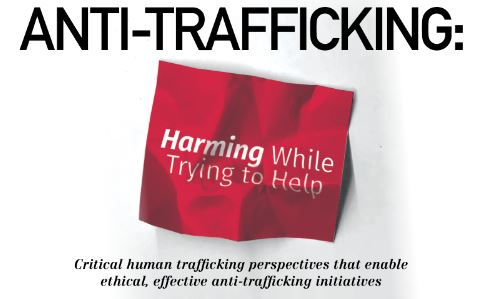Celebrating our past, present, and future
We are excited to share with you that we are turning 20!
We want to thank you, our supporters, donors, funders, volunteers, staff, board, and everyone else for your continuous support and efforts in working with us to advocate for the full decriminalization of sex work in Canada that will include migrant sex workers.
20 years ago, SWAN started out as a small grassroots collective that was run by volunteers. The people who ran it had a combination of lived and other experiences who saw a massive need for social, health, and legal services in the massage businesses.
SWAN came into existence because im/migrant sex workers then were unable to access mainstream services, and experienced multi-layered stigma and criminalization.
20 years ago, im/migrant sex workers had few options to access non-judgemental employment, health, social, immigration, legal and criminal justice support in the community.
SWAN filled this void by offering low-barrier, sex worker rights-centred services. Back then, and to this day, law enforcement raids carried out on massage businesses in the name of ‘rescue’ and protection were rampant with no oversight or accountability.
Over the years, SWAN worked tirelessly to educate law enforcement that im/migrant sex workers were not asking to be rescued from the means in which they were earning a living and a more informed approach to address their actual criminal justice needs (not trafficking) was needed.
Not much has changed
It is unfortunate that not much has changed. In fact, the stigma, isolation, exclusion, and criminalization have increased as society now views them from a more regressed and morals-based lens.
All this, while the battle for labour and legal rights continues.
Today, SWAN is a registered charity and has a staff of seven. We continue to offer language- and culturally specific, and non-stigmatizing services that address im/migrant sex workers’ needs in areas of social, health, legal, immigration, and criminal justice.
While we advocate with them to have equal and equitable labour and immigration rights, much more advocacy is needed now, more than ever, because of the continued conflation between sex work and trafficking. Over the last 20 years, SWAN has been brave enough to critique the harms and the discourse in how trafficking is addressed.
The harms of the anti-trafficking discourse
Moral opposition or moral understanding of sex work are also more entrenched now than they were years ago, primarily because of the trafficking discourse. Communication and education about the realities of sex work sector are important, especially because the general public and the media have come to understand it as violence against women across the board. Sex work is not a haven for sex trafficking.
The narrative that all im/migrant sex workers must be trafficked and forced into this business against their free will is rooted in racism, and misogyny, while the desire to help and save them comes from white saviourism.
These women stand at the intersections of race, gender, class, economic, social and immigration status. They are often seen as the ‘other’, unwelcome type of immigrants to Canada. While anti-Asian racism was always prevalent, Covid certainly emboldened people, and these women face the brunt of people’s hatred. The murders of six Asian women in Atlanta, killed because the perpetrator associated them with sex work, are a reminder of the dangers that sex workers, especially racialized and migrant ones, face.
What can you do?
The single most important thing readers can do is to learn the difference between sex work and human trafficking since much of the misunderstanding comes from the conflation of the two.
Oftentimes, people support anti-trafficking campaigns to express their concerns about women in the sex industry. However, anti-trafficking campaigns are rife with unsubstantiated claims that actually increase stigma and misinformation about the sex industry, which in turn harm sex workers in a myriad of ways.

SWAN has accessible resources for the general public to learn the difference between sex work and human trafficking and the ways in which anti-trafficking campaigns are more harmful than helpful.
Please see SWAN’s ‘Anti-Trafficking: Harming While Trying to Help’ project and resources here.
The narrative from the media, the police, and politicians often emphasizes the need to help people who have been exploited or trafficked in the name of the Protection of Communities and Exploited Persons Act. Police continue to surveil and monitor sex work establishments under the guise of anti-trafficking initiatives. But the cases where they find people who are actually defined as trafficked and are actually underage are very minimal. The damage that they cause by doing this, and by detaining and deporting migrant sex workers, is far more worrisome because it speaks to the sweeping powers the police have.
The general public, policy makers, and law makers must continue to learn about the difference between sex work and trafficking. Until then, all law reforms will be stymied by the conflation between sex work and trafficking, along with the dominance of anti-trafficking discourse.
What does the future hold?
We want to reiterate that Canada needs to decriminalize sex work by including migrant women so that they have full labour and legal protections in their work, just like millions of other Canadians who go to work to earn a living.
Decriminalization is one part of this struggle for the recognition of sex workers’ legal, immigration, labour, and human rights. We’re also fighting for these women to have the rights to their own bodies, equity and equality, health, safety, and above all full agency over their person.
Despite people’s moral views of sex work, we must understand, and accept, that everyone in society, however they earn income, deserves protections and legal and labour rights, that is detached from morals.
